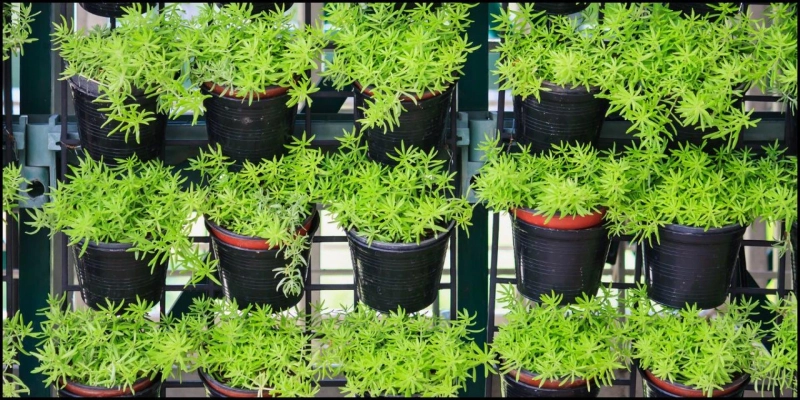Choosing the Right Soil for Your Vertical Garden
Vertical gardens are a fantastic way to bring nature into your home or outdoor space without much room. But for your vertical garden to thrive, selecting the right soil is essential. This guide will walk you through what you need to know about soil for vertical gardens.
Why Soil Selection Matters
Soil is the foundation of any garden, providing plants with the nutrients, water, and air they need to grow. In a vertical garden, soil choice becomes even more critical because it must support plants in a confined space and often under unique growing conditions.
Characteristics of the Best Soil for Vertical Gardens
- Lightweight: Vertical gardens require soil that is light enough. Lightweight soil reduces the strain on your garden structure and makes it easier to handle.
- Well-Draining: Good drainage is vital to prevent water from sitting around plant roots, which can lead to rot. Soil that drains well ensures that excess water flows away.
- Nutrient-Rich: Plants need a variety of nutrients to grow strong and healthy. A good soil mix will contain essential nutrients like nitrogen, phosphorus, and potassium.
- Moisture Retention: While good drainage is important, the soil should also retain enough moisture to keep plant roots hydrated.
- Aeration: Airflow is crucial for root health. Soil with good aeration prevents roots from suffocating and encourages strong growth.
Recommended Soil Mixes for Vertical Gardens
- Commercial Potting Mix: A high-quality commercial potting mix is often the best choice for vertical gardens. These mixes are designed to be lightweight and well-draining, typically containing ingredients like peat moss, perlite, and vermiculite.
- Coco Coir Mix: Coco coir, made from coconut husks, is an excellent alternative to peat moss. It is lightweight, retains moisture well, and provides good drainage. Mix it with perlite and compost for a balanced soil blend.
- Homemade Soil Mix: You can create your own soil mix by combining equal parts of peat moss or coco coir, perlite, and compost. This mix is lightweight, nutrient-rich, and retains moisture effectively.
Tips for Maintaining Healthy Soil in Vertical Gardens
- Regular Fertilization: Vertical gardens can deplete soil nutrients quickly. Use a balanced, water-soluble fertilizer to keep your plants nourished.
- Monitor Moisture Levels: Check the soil moisture regularly to ensure it’s not too dry or too wet. Adjust your watering schedule as needed.
- Refresh Soil Periodically: Over time, soil can become compacted and lose its effectiveness. Refresh your soil mix every year or two to keep your plants thriving.
Conclusion
The right soil is the key to a successful vertical garden. By choosing a lightweight, well-draining, nutrient-rich soil that retains moisture and provides good aeration, you can create an environment where your plants will flourish. Whether you opt for a commercial mix or a homemade blend, investing in quality soil will pay off with a vibrant, healthy vertical garden. Happy gardening!



